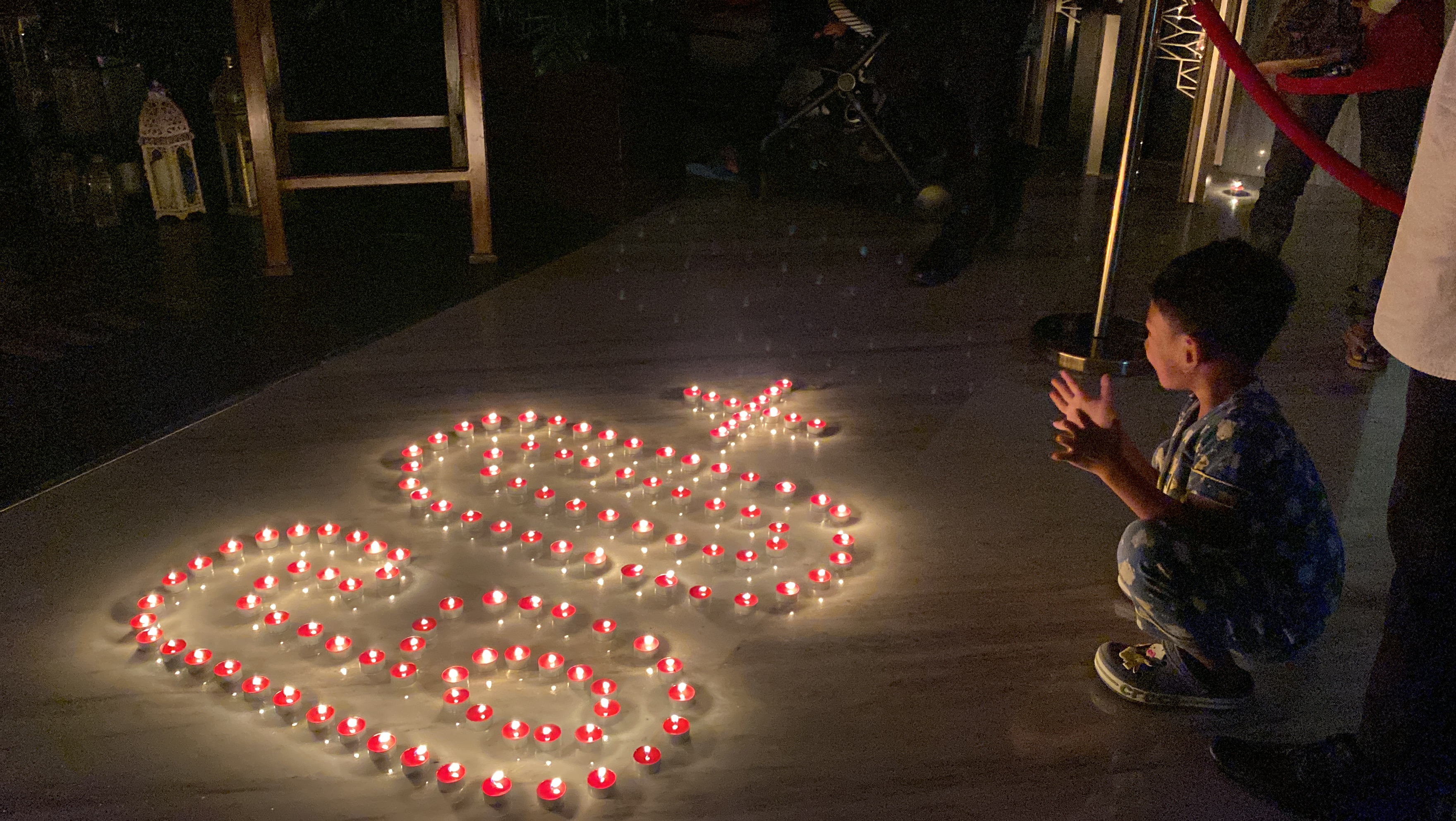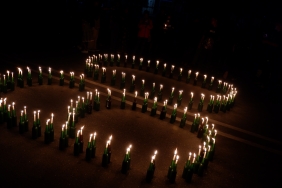EARTH HOUR 2015: GREEN THE FOREST, BLUE THE SEA
By: Natalia Trita Agnika and Ciptanti Putri
Every Saturday in late March, iconic cities turn off their power. The glittering light that usually illuminates the night sky in big cities is replaced by a dim atmosphere for an hour as skyscrapers turn off their lights. The movement to turn off the electricity simultaneously at 20:30-21:30 local time was complemented by individual actions in their respective homes. That was the atmosphere created during the Switch Off global Earth Hour campaign.
Earth Hour is the largest global campaign in the world with a message of awareness on climate change issues. WWF is one of the initiators of this worldwide activity. As many as 2.3 million people participated in turning off unused electrical appliances during Earth Hour 2013, with a total of 3,395 world landmarks participating.
The campaign was originally intended to encourage energy efficiency with a one-hour action to turn off the lights. However, the environmental action did not stop there. Earth Hour's message has evolved over the years. The addition of the + (plus) sign behind the number 60 in the Earth Hour logo signifies further action after one hour of turning off the lights.
Many people now believe in the positive impact of the Earth Hour movement and are committed to taking part. Through small but real actions that involve many parties in a sustainable manner, changes to a better earth are believed to be realized.
In the seventh Earth Hour event in Indonesia which falls on March 28, 2015, 28 cities have committed to participate. This year, Earth Hour Indonesia still carries the message "This is my action! Where is your action?" with the theme "Green the Forest, Blue the Sea." A total of 7 conservation program initiatives from Earth Hour Indonesia communities in various cities are ready to be supported by all Indonesian people.
The uniqueness that is also the strength of Earth Hour lies in the small but real actions taken by many parties. In addition to turning off lights and unused electrical appliances and making it a lifestyle, the real action that we can do is by providing financial support for conservation programs carried out in Earth Hour 2015. Through crowdfunding, many people can donate money to fund forest and marine conservation programs that are being worked on by Earth Hour activist communities in various regions.
So, Earth Hour is not just about turning off the lights; we can contribute to saving the planet by starting a green lifestyle and spreading this habit to many people. We can also utilize the power of social media to help save nature. By sharing links to various crowdfunding programs on Earth Hour's online donation platform (earthhourblue.crowdonomic.com), we are already contributing to the preservation of the earth.
Are you ready for Earth Hour 2015? Here's my action! Where's yours?




